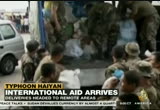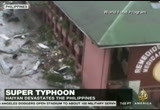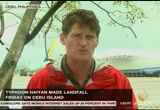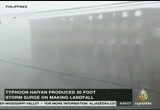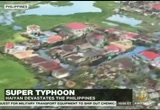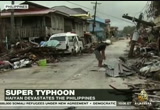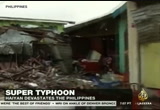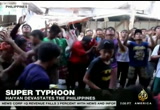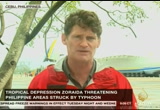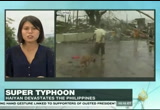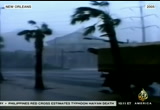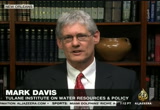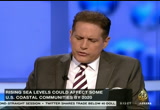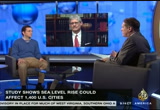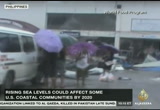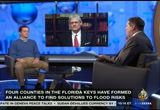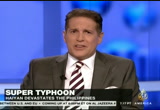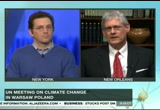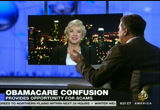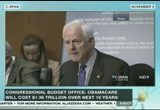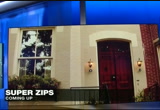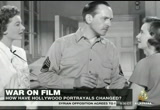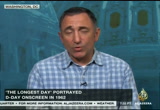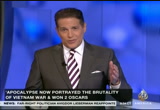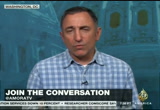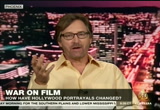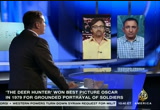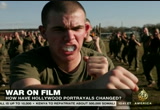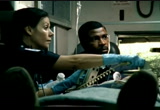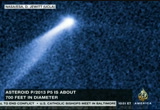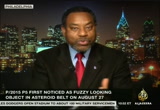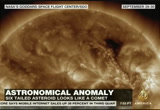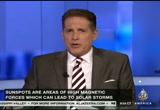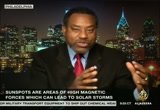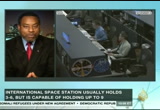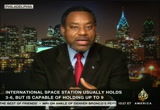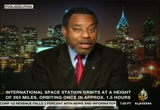tv Consider This Al Jazeera November 11, 2013 10:00pm-11:01pm EST
10:00 pm
welcome to al jazeera america. i'm john siegenthaler in new york. here are the top stories. >> the united nations says more than 600,000 people in the philippines have been displaced by typhoon haiyan. we are getting a closer look at the devastation tonight. it's estimated more than 10,000 may have been killed. 10 million have been affected by the storm. dozens of countries are answering the call for help. international aid is pouring in. the filipino military is delivering aid to remote areas since the storm hit. >> secretary of state john kerry says the u.s. and global powers were united on a nuclear deal
10:01 pm
with iran and they failed to accept the proposal. iran's foreign minister responded saying john kerry issued conflicting statements and said progress was made in the talks. >> ceremonies across the country for those that were in the forces. >> president obama laid a wreath at the tom of the unknown and spoke at arlington. >> that's the headlines. "consider this" is next. and i'll see you back here later. you can get the latest news on aljazeera.com. [ ♪ theme ] the philippines bracing for
10:02 pm
another storm as it's digging out of disaster from the massive typhoon. "consider this" as devastating storms and rising sea levels impact around the world, can anything be done to protect coast at communities. scammers - what to look out for and what is being done about them. veterans day - the changing face of war and soldiers on screen. i'm antonio mora, welcome to "consider this." we begin with the terrible destruction caused by typhoon haiyan, and the threats of rising sea levels pose to communities around the world and home. first the philippines, 10,000 may have been killed in one city alone, hundreds of thousands have been struggling to survive across the island chain since the typhoon made landfall on friday. i'm joined by al jazeera correspondent craig leeson at
10:03 pm
cebu, and by lynette lim, from save the children, who was at ground zero at tacloban when the typhoon came ashore. >> the u.n. is going to send aircraft carriers and help as soon as possible, craig leeson, what are you seeing come in now. >> the "george washington" is on its way and other warships will arrive within 48-72 hours. people have come from the okanara base. search and rescue is their task, and airlift where required. relief is coming in for the central area of the philippines, this is where the typhoon came from east to west. it's the
10:04 pm
base where they are sending in supplies to tacloban, which was the capital of the hardest-hit province, leyte, and that is where the provincial governor believes the estimate of dead will rise - between 20-30,000. >> it's horrifying numbers. lynette lim, you were in tacloban, and were an eyewitness to the worst of the typhoon. where do you seek shelter? what did you see when it made landfall? >> i was stationed at the department of education for regent 8. the structure was safe, so we were able to look outside at what had happened. on the second floor i was fortunate enough to have missed the storm surge that came up to a metre, a metre and a half, with strong currents as well. outside on the window i could see debris being blown away and hitting against a window.
10:05 pm
glass was shattered, and roofs were being ripped off, as well as trees falling, electrical lines down. cars were turned over. it was a devastating site. >> the storm surge was not as high where you were, but in other places they said it was 16-20 feet. people on the second story of some buildings were just taken away by the water. >> yes, indeed. i was inland about 400m away from the sea. so it was quite a fortunate incident for me. >> craig, do you get a sense that the philippine authorities have anything resembling a grasp yet on how much devastation was caused by the typhoon. in my personal experience i was in south florida after hurricane andrew and we are talking about better building codes and the devastation went on for miles and miles, and it was a smaller
10:06 pm
storm than this. >> well, yes... . >> that's correct, i've been doing aerial surveys to get the full extent of the damage here, to get an idea of how big this storm was. it actually touched 44 provinces within this country. they say that - the government says 9.5 million people were affected. some 650,000 people have been displaced. it was an enormous storm, and it was packing so much power when it hit leyte province. as you heard, the storm search represented a tsunami. one of our own correspondents was caught up in the storm surge. she was reporting as it hit, and she was forced to climb through the ceiling of her hotel to get to the roof. her and her crew feared for their lives, like many others. it came thick and very fast. if you look at the debris and
10:07 pm
the pictures that i am sure you have seen, you can see that it does look like a tsunami. many of the ngos say it looks like the indian ocean 2004 tsunami, because the debris is scattered everywhere. nothing on the east coast was untouched. there are few structures, trees or telephone poles standing. that's why the rescue effort has been difficult. there's no power, and there's no communication, so people in need of help who haven't eaten, are unable to communicate that to the rescue workers, that's a problem. it's identifying where the survivors are and getting the food and aid to them. >> it's impossible to underestimate the power of the storm surge, the power of water. lynette, you are with an ngo, and the heart breaking pictures we have seen are of children, and the suffering of children, which is what you are there to do, and help with.
10:08 pm
what can you say or what do you know is going on there in manila, in the capital to help the children who are suffering? >> yes, there are a lot of children in the area. most families we have seen have four to nine children. they have no food, no water, have no means of communicating to the outside world. they have no schools to return to, and we'll be left out medical supplies unless the international community comes together to support them. it's important for the children who have been through a catastrophic disaster to recover from something like this. it requires professional support. save the children will set up child friendly spaces where children will be able to receive counselling and play with other children and talk through their experiences with a trained adult or other children. outdoor activities can be planned to ensure children feel
10:09 pm
like there are some - there is some sense of normalcy to life. next is education. schools need to be rebuilt. children need to get into a routine to feel like life is normal again. >> that'll be an enormous effort. our heart goes out to all the children. >> the relief efforts are going to be hampered because there's tropical depression in the area, making life miserable for everyone. >> that's right. as you can see behind me it's raining here now. that is expected to get worse, and it couldn't be a worse situation for these survivors. they've been through so much already. it's so difficult for them to find food. many are scavenging for food among the debris. they don't have shelter. imagine what it must be like to be here at night-time. it's difficult to pick your way through the debris in the day.
10:10 pm
at night-time it's black. there's absolutely no light whatsoever. and now it's raining. tonight is going to be an extremely miserable time for the survivors who are still out there and who help, hep hasn't reached, and they don't have shelter. >> the other horror and health hazard - we see it in the pictures - bodies are strewn everywhere. nobody can move them at this point, because they are more concerned with survivors. >> of course. it's important for us to deal with those that have survived and ensure that they survive in the coming days, weeks, months. and to come and immediately they need food, clean water, they need shelter and medical supplies, and aid agencies such as save the children prioritise the survivors to ensure they are well taken care of, children can recover. no child should have to go through a catastrophic disaster
10:11 pm
such as this one. >> i wish you the best in your efforts to help the children there. >> thank you for joining us tonight and giving us that report. thank you both for joining us. >> for more i'm joined from new orleans, bay mark davis, director of the tulane law school on institute on water resources law & policy. and with me here in the new york studio is adam sobel, a professor at the lamont-doherty earth observatory, and school of engineering and applied sciences, adam - we are too familiar with the storms in the u.s. we know what superstorm sandy did. area residents are recovering in some cases from the storm. katrina the deadliest storm in american history in the past decade. how do those compare to the nightmare in the philippines? >> this storm was more powerful an either of those. sandy of winds of category 1, it was large, making the surge
10:12 pm
equivalent to a stronger surge. katrina at landfall was 3, and this was 5 at the high end. possibly the strongest storm ever to make landfall in recorded meteorological history. it will be some time before that is concerned. catastrophic. >> do you think the surge will be the biggest - what caused the most damage. >> the wind flattened a lot of structures. yes, if other events and reports are an indication, it's likely a lot of death and destruction was caused by the surge. >> what was your response when you saw the devastating pictures from the philippines, having seen what katrina did in new orleans. >> it was all too familiar - very similar to the destruction we saw in our communities. it was a reminder that - to avoid this thing, you have to plan well in advance. it's too late to really make the plans in the heat of the moment. >> what is the reaction from
10:13 pm
from people down there. i think people are now starting to get a handle on what has happened. obviously after katrina and rita and gustof and ike, i think people are sensitive to the - you know, the suffering going on. more importantly, the interests here is not merely in how do you help with humanitarian response. how do you - you know, plan for a better future, not just planning for the next storm. >> i want to get to that. some blame climate change for some of the huge storms. every time there is one, they say sandy is climate change, katrina is climate change. brian mc nulty said with this typhoon:
10:14 pm
>> do you agree. typhoon haiyan was huge. the hurricane season this year... >> they fluctuate. a storm like this doesn't need climate change to exist. at the same time it is happening and there are reasons for this. we can't link it to climate change. >> possibly warmer oceans would fuel the hurricanes. >> that's it essentially, but it's a little more complicated. >> apart from the only problems faced by ocean side communities, there has been sea levels rising. since the late 1800s. they seem to be rising faster, and we have maps showing all
10:15 pm
sorts of coastal cities in the united states could be impacted as soon as the end of the decade. this is something that you look at down there - places like' which floods almost every time there's a heavy rain. what should people in coastal communities do to prepare for a future of rising seas. >> they need to be honest about the nature of the risk they are looking at. i think we have to be clear that we don't have 10 years, 20 years, 30 years. some communities are feeling this. we are seeing communities that were really hacked out by katrina, rita or isaac, that aren't coming back. so i think it's a mistake to think this is - we have the luxury of dealing with in the future. we have to get serious about it now. it effects not just the way we respond to a storm, if you look
10:16 pm
at what is happening with flood insurance claims, and the insecurity that that can produce and investment markets, it's hard to build a community if you can't get a mortgage or insurance. that's what we are starting to see. it's not just the storm events, it's the chronic events that pose risk, including to water supply, seas rising, the water supplies of coastal communities on the chopping block. we have to get more realistic about the nature of the risk we are trying to deal with, and build around it. we are never going be in a risk-free environment. we can be smarter about how to deal with the risks. >> the question is how risky is the coastal community, and how much the sea will rise. estimates vary as to what could happen. there's no question with mild sea rising, which certainly has been a pattern over 150 years, that any of these big storms
10:17 pm
that brings a surge with it will devastate the low-lying cities. >> you brought up two issues - one is how vulnerable the area is, and a big reason for hurricane and typhoon disaster is development and people living in harm's way. >> the sea level rise is a factor and a consequence of climate change. it's a small factor, a foot or something maybe, and compared to the huge storm surges we have heard about from typhoon haiyan, it's a small part of the story. as it becomes 3, 4, 5 feet by the end of the century, lesser storms will have a great impact. >> in the context of what adam is saying, do you think that people in new orleans have figured out what they need to do. has louisiana learnt the lessons, will they be ready the next time a big storm comes? >> we are more prepared than we were. we are a little more honest about it than we were.
10:18 pm
things are changing as we change. i think, you know, the question of whether we've learnt what we need to, school is out on that. i'd like to follow up on something that adam said. it's not just the big storms, it's a mistake to think that your future is going to be written by one of these catastrophic large powerful storms. >> you have to remember in 1991 there was another typhoon that hit the philippines, smaller, category 1. it killed around 5,000 people. it's not necessarily the size and the intensity, it's the characteristics. slow-moving storm can produce the same consequences. you have to think not so much about the storm event. you have to think in terms of what are you prepared for. >> how to protect yourselves. >> mark davis, adam sobel, we appreciate you coming in. coming up fake obama scams
10:19 pm
10:21 pm
>> regardless of where you stand on obamacare, there's an area where there's little to know argument. affordable care act is a great opportunity for scammers. less than 50,000 have enrolled so far. that may mean there's a long road ahead with a lot of possibilities for conartists who prayed on people thanks to the confusion. joins me to discuss the scams and privacy issues is linda vincent, an expert on scams. these affordable care act scams have popped up. one is to prey on the seniors. a scammer will see he's part of
10:22 pm
obamacare and wants to verify informationing and threatens people if they don't give information, they'll have to go to gaol. is the question there's so much confusion that it's ooesy for people to be -- ooesy for people to be fooled. >> you can find almost everybody on google. the seniors are the most targeted population, they are vulnerable and are not used to using the websites and the internet to find out what they have to have. people can call them and say, "oh, i am from the website, and i want to offer you the opportunity to sign up before everybody else." so seniors trust what they've been brought up with, and they feel that the government has been safe and has been there for them. medicare has been there for them. >> another scam involves the website or fake websites imitating the government
10:23 pm
website, and websites that seem to work better than the obamacare sites. this is another thing that people have to watch out for. seniors and younger people. >> very true. when you go to the website it's like a fishing expedition. seniors will get through the male and say, "we are here for you, sign up now. we would like to assist you in that process." and the problem is they are giving personal information out from their own dates of birth, social security information, savings information. and once with that armed with that information, the bad guy, the fictitious people looking for that can do any number of things. one of the first things, of course, is to take the identity and recreate the senior, and, more importantly, say that they want to have the opportunity to meet with a senior and knock on their door and meet them face to face. >> and all the danger that that brings. there's the fake obamacare card.
10:24 pm
the better business bureau has issued a warning about this. there's no need for an obamacare card. people have been falling for this one too. >> they have, because they've been told that it will replace their medicare card - there is nothing that is going to replace the medicare card. there's no such things as an obamacare card. the confusion with the setting up, the health care act and no one assuring the seniors that medicare is there for them, their concern that they might need something new, and they don't. >> that's the message for seniors. they have nothing they need to change. medicare is medicare. navigators are supposed to help people enrol, and what has been happening to is they are bogus navigators, right. >> that is correct. "we are here to help you." they are supposed to answer questions
10:25 pm
if they phone in. the navigators, particularly scare me, for the fact that they don't do background checks of any sort, criminal background checks because the government has their data hub, which is the irs, the department of defense, department of health and human services and they share all that information. the navigators who are truly hired are not expected to have a background check done on them because they are part of the government. though they have been said, and it's been told that their information is safe. >> now, the potential fraud is enormous. we are talking about a fifth of the economy. if the numbers that have come out are correct, fewer than 50,000 have enrolled so far. their expectation was they'd need 39,000 every day in order for the amount of people they needed to get enrolled by march 31st. that's what they were expecting. the number of people that should be coming online is enormous.
10:26 pm
it's an enormous part of the economy. how concerned should we be? >> we should be very concerned. i don't think they have enough navigators to assist. they only get training of 20-30 hours and they are expected to know what's in the 1200 pages of the american affordable care act. in that situation, i don't know how 20-30 hours gives you all the information in the 1200 pages. >> there are other issues of the navigators. during testimony at a hearing, kathleen sebelius, the secretary of health and community service said felons could be hired, which could give information to personal information. >> so a convicted fellon could be a navigator and require sensitive information from an individual unbeknowns to them? >> that is possible.
10:27 pm
we have contracts with the organizations and they've taken the responsibility to screen their individual navigators and make sure that they are sufficiently trained for the job. >> so, again here, linda, people who are nervous about giving their personal information when they hear this kind of thing can't be good. >> i would agree. i wouldn't want someone in a prison taking my information, because identity theft ring starts in many areas. prisons are one. seriously it's on the scary tactic side for someone to find out someone has that information, my information, identity thefts that start in prison and spread to the outside world because they have connections. >> what do you recommend to people? how should they protect themselves? >> first you need to ask for credentials. normally you are not going to receive a call from the government saying, "i'm here to
10:28 pm
help you to sign up." that's a first red flag warning. secondly the navigator are not going to come to your door. if they do, ask for credentials. they should not come to your door. they don't have your official information. the government, medicare, they have the information internally. they don't need to send anyone out to confirm or to reissue your medicare card. >> important advice. appreciate you joining us linda vincent. >> thank you. how has hollywood's treatment of war changed since world war ii. we take a look as america honours its veterans. and we look at a high concentration of wealth in america - here is a hint - it's not far from one of the most powerful zipcodes in the world.
10:30 pm
10:31 pm
comic but tragic look at the war. vietnam brought disturbing films "the deer hunter plat on" and "coming home". as the body of work grose, how does it show, as we have shows like "the hurt locker", and "homeland." >> we have potts , from the franklin institute science muse muse museum -- good to have you both here, bill wyman. let's go back to world war ii. it seemed back then that films portrayed soldiers as heroes. is is that a fair assessment? >> i think so. there was a lot of victims, we go back to the western front, an oscar winner with an
10:32 pm
unhappieneding. "best years of our lives" is interesting. it showed what happened to veterans coming home from the "good war" and we saw a lot of societal pressures - financial and physical - when it came to maiming and injuries suffered in the second world war, and that the heroes overseas came home and found it difficult to find their way back into society. the films surrounding the war was about heroism. >> absolutely. >> the irony is we go to the forgotten war, the korean war. that more so many don't think about when you think about the history of war in the 20th century. it led to a successful show "mash", and a movie by the same title. >> it's true. i bet you, though, given when
10:33 pm
machine was on tv, a lot of people to this day equate it to the vietnam war. "mash" was about the korean war, letting the tv people play with the vietnam war. >> you are a consultant, tim clemente, what are the biggest issues you have about how war is portrayed in hollywood? >> there's a disconnect between hollywood and war fighters. i don't think physically they are connected to individuals going into the military. those that live in the hinter lands, fly-over country are more connected to the military. every one of my neighbours is a former marine or served in some capacity with the military. the thing that hollywood misses is the actual type of person that goes into the military. you look at the movies you
10:34 pm
mentioned. platt on and vietnam, and a lot of those soldiers were not ideal human being. a lot serving could be ceos working in companies or walmart. they choose to sort of. today it's more recognised with some films that have come out in the last several years and now. >> talking about vietnam, people described the comparison between vietnam and world war ii when it domes movies is everyone in world war ii was portrayed as a hero, and as being crazy. is that fair when you look at some of the movies that came out of the vietnam war. some of those movies fit the bill. it goes both ways. one of the best is coming home, where you saw bruce stern as an uptight successful military
10:35 pm
veteran, who is not able to deal with society. is it >> i make the argument that they are nuanced, that we went through the psychodelic significance of "apocalypse now", to, "coming home", and the "deer hunter", oliver stone volunteered. he was a successful hollywood director. he has his own personal take on there. a lot of famous directors "casualties of war", things like that, started dealing with america's guilt. we had a lot of guilt about vietnam. despite the fact they portray horrific scenes, i think they are relatively sympathetic to the guys on the ground. >> tim, you talked about the disconnect between hollywood and
10:36 pm
fly-over country where more are members of the military. moving on, do you see film makers now taking less of a stance on the wars themselves and focussing more on the issues, as coming home did with respect to vietnam, more on the issues that confront soldiers? >> i think they are. if we look at "black hawk down", no discussion of the politics of why we were in somalia or looking for the warlords. it's talking about the heroism of guys that died and fought around them. and move on to "act of valuer" last year or the year before. navy seal movie by the ban deedo brothers, spending 13 months with the navy seals, training and shooting with them. the heroism of the individuals is all that film concentrated on, not the politics. and "lone survivor", i went to
10:37 pm
an advance screening, marcus latrelle a hero for surviving the men who died, heroic. the politics of afghanistan, why we are there, from a military stand point as far as surges - they are not considered in a film like that. it's these guys in that battle and how they survived. >> dealing with what faces the men and women. so many are coming home in ways that they did not come home in the past. modern medicine is allowing men to return to the united states who would have died on the battlefield. many would have had brain trauma. the fact that we are willing to talk about that. are you seeing that having an effect in hollywood, and the cashing trs we are seeing and on television. >> i am. ptsd. it might, if anything, be overplayed. it's displayed more in films.
10:38 pm
shell shocked would have been a term used in world war ii. i think today it's probably much more common in war fighting. especially in places like iraq and afghanistan, where the operational temple of the soldiers is higher than in vietnam. in vietnam you may have a unit going out on a patrol for a day or two, and returning for a week or so before it recoups and goes on control. in baghdad the soldiers are more like cops on the beat. they are patrolling every day, day in, day out for weeks and months, if not a year or more at a time without a day off. they see the guy beside them blown up. they get injured or shot. that's why we see a greater occurrence of ptsd and other problems, post traumatic brain problems with guys getting
10:39 pm
flipped over in humm veries. hollywood is reflective of that. you are seeing it in television and feature films. identifying the problem is half the battle. >> fortunately america is receiving the men and women serving, and risking their lives for us. they are receiving them in a far better way than men who fought in vietnam were received. bill, that attitude, the attitude of the country, are attitudes shaping hollywood's coverage of war on film or is hollywood shaping america's attitude towards war. which comes first? >> it's a great question. we are talking about the film business. it is a business. what i mind interesting - hollywood makes these iraq war movies, "the valley of the law", the john cusack movie about his wife grace who died in iraq. the movies come and are flopped with few exceptions. "the hurt locker" is one of the
10:40 pm
lowest grosing best picture movies. audiences have made it clear they are not friday in war movies with one or two exceptions like "act of valor", and hollywood wanted to do this, but the world it different today. john houston made movies during the world war ii. they were soup revved by the army because they dealt with ptsd too provocatively. there was a lot of cases. we had a different world where things could be controlled. we'll hear more. there's many documentaries that we haven't talked about. again, they are out there. they are on netflix, on the internet. few are phenomenon. it's the market. people are not interested. >> they don't seem to have an appetite for them. >> what do you see as the biggest misconceptions that directors and producers have of wars and soldiers before they get to work consulting on the
10:41 pm
projects. >> again, they don't understand the calibre or the individuals in the military today. these - a lot of young officers are - i was just this past weekend, i live near quantityico, all marine officers are trained there. we have young officers at the house for dinner to get them off the base. we have 7-20, all marine officers. the calibre of these guys - it's overwhelming. i'd let any of my daughters marry any one of these guys - and i told them so. it's reflected in movies like "act of valor", but not "plat on", where an officer is shot by his own men because he's a horrible human being. i'm glad to see that. peter berg, who spent five years preparing for "lone survivor",
10:42 pm
immersed with mark katrell and navy seals to learn the world. that's a positive development. most people in hollywood are so far removed from the military that they don't have the relationship necessary to portray the individuals serving proudly in this country. >> it's fascinating to see what hollywood's war through the lense of hollywood, and how it's changed over the years. >> bill wyman, tim clemente, great to have you back. >> ahead - a collection of powerful neighbourhoods in america. we'll tell you where they're concentrated and how that city thrived when so much of america did not. later - a discovery in outer space that has scientists over the moon.
10:45 pm
>> today's data dives moves to pricey zips, super zips. analysis of sensis data found one in three zip codes in the dc area rank among the top 5% in income and education. the number of wealthy families in the national capital is soaring. metro wealth index shows the number of high net worth residents with investable assets of more than a million jumped 30% to 1,066,000 residents when the rest of the country was in the recession. the high prices of real estate
10:46 pm
forced many from the neighbour hood leaving a less diverse group of residents. dc's economy is growing faster than that of any state, helped by the fact that it has the highest percentage of adefaults 25% and over with a bachelor's disease m how did dc get richer while the rest of the country struggled. it's an industry town, that is government, one out of every six residents in dc is employed by the feds. the government pays well. average total compensation for federal workers was $126,000. that's 20% more than the average for private sector workers. stimulus dollars poured into dc during the recession, making it softer than anywhere else. then you have the people who don't work for the government, but make lots of money off of it - lobbyists and lawers,
10:47 pm
health care and finance reform made business boom at a time when unemployment was soaring everywhere else. government shutdowns notwithstanding, it's a good idea to be a federal beaurocrat living in dc, especially when times are bad. >> coming up a new find in outer space with almost as many tales as an octopus has legs.
10:49 pm
>> the huble space telescope spotted something that has never been seen before - is it a comet, asteroid or something else? whatever it is it sprouted six tails that change shape from day to day. the sun is supposed to reach the peak of solar activity in its 11-year title. why is the solar max muss the weakest it's been. the olympic torch has gone where none has gone before. it hitched a ride to the international space station, where it became the first
10:50 pm
olympic torch to experience the vacuum of space. here to talk about these space stories and more we are joined by fila tellifia derrick pitts, chief astronomer with the franklin institute science museum. talk about the asteroid. scientists say they have never seen an asteroid with six tails, most thought comets had tails. how did this grow a tail - let alone six of them? >> it's an unusual creature indeed. an object like this, having this many tails is unusual. for comets it may not be unusual because the heating of the nuk lee us of the comet by the sun, as it comes in towards the center of the solar system can generate tails of dust and gas. as the comet nucleus rotates you may see a number of different jets of gas. when analysing this object it
10:51 pm
looks like it's too hot to have ice layers, so the thought of what this could be turns to another interesting fact will some after roids, and that is that in some instances, they are not much more than a loose aglomeration of boulders, rocks and gravel and dust just held together loosely by the graf itational hold of the object itself. in this case, this is what this might be - loose enough that as the sun heats it it generates jets of dust that come off and then the solar wind coming from the sun, electromagnetic particles create dusts. as the asteroid rotates, another location where loose dust comes off forms another long tail that we have been seeing in the photographs. >> that is something that is interesting. it's interesting how much the tails change over a short period of time. in a few weeks the tails moved
10:52 pm
drastically. what can we learn from something like this? >> we can learn a couple of things. first, we can study the effect of the solar wind, the blast of electromagnetic articles coming out of the sun. we can learn about the structure of after i said and the idea or the -- asteroids and the idea or notion that they can rotate as they are heated by the sun. we learn a little about the asteroids as we go along. it's the first time we have seen something like this. once we have seen one object, we can look for others and find different sorts of examples of this. that helps to fill out the picture of how the objects come to be, where they come from, and a little more about the early history of of the solar system. >> how big do you think this one is? >> well, avt ron mers believe this is about 1400 feet in size. that's a little less than five
10:53 pm
football fields. so that's a pretty big object. nab not so unusual for an asteroid, but with the jets blasting out, 100 to 100,000 tonnes of merely to the jets that's a big piece. >> will it disintegrate quickly. >> it probably won't. it will hold together but will lose gas until the easy stuff to off gas disappears and we are left with heavier, solid pieces and just the light dust will be blown off. >> you brought up the sun. what is going on. it's supposed to hit the solar maximum, there's supposed to be lots of sun spots and storms. it's supposed to be act i, it's not. is this something we -- active, it's not. is this something we should be concerned about. >> it's the weakest solar
10:54 pm
maximum. i watched from 5-6 years ago and took note that it took a long time to produce the active spot renalans, they were very week. as we study the sun we learn more about it as well. when we learn about this weakness in the strength of the maximum, it makes us wonder what we can expect going forward into the future. it may not be unusual for the sun to do this, it's more likely more unusual that we are identifying the pattern because the length of time we've studied the sun with a great degree of certainty is not that long. we are learning about how the sun can behave. the head of the solar physics group at marshall's space flight center says the maximum could trigger a period that will lens the impact of global storming. does the intensity of sun spots play that big of a role in the
10:55 pm
earth's climate? >> well, it is true that the effect of the sun on the earth's atmosphere does have a lot to do with weather systems on the planet. the heat from the sun drives the weather systems of the planet. you can see there's a direct connection between solar energy coming to the planet and the weather of the planet itself. to try to make a connection - let me say it this way, it's probably better to keep the two separate so there's less confusion between global warming, climate change and the sun's relationship with the earth. it's a long-going relationship since the two got started 4.5 to 5 billion years ago. it's better not to mix the two. the sun's effect on the earth's atmosphere. we see how it can change the temperatures for a brief period of time, as opposed to the
10:56 pm
global warming climate change effects that may be more related to or are more related to human activities. it's better to keep those two separate. >> let's move to the international space station, it hosted the olympic torch while it was there. it went into outer space on a spase walk - the first time the torch has been in the vacuum of space and created a situation when the soyuz got there, that it housed nine astronauts and cosmonauts. it got a little crowded in there. what is it like to be this that kind of confined space for that long, especially when you have extra people? well, it's better being on international space station with nine people than on space shuttle with 7-9 people. that would be a crowded situationment although it may not be as good as, you know, a
10:57 pm
large presidential suite in a fine hotel, let's say. for being in space it's nice accommodation, nice digs. there are some adjustments that have to be made because typically space station had three people on board, they moved to carrying six people. having the extra three people - it would be easy to - or it had been easy in the past to attach new modules to expand the capacities, for now the real things to consider are where do people sleep, are there enough supplies for them on board, is there enough capacity in the atmosphere to make sure the extra amount of carbon monoxide is pulled out. and what to do in case of emergency, are there enough emergency vehicles for astronauts to return to the planet. >> it's an important point. karen nieber was one of the nine
10:58 pm
astronauts that came back to earth. she said it's great to have nine people, what kind of projects are they working on, how significant is the work they are doing there. >> there are all sorts of projects on board the international space station. there are biology projects, physics, chemistry, all sorts of experimentation done, related to extending or sort of developing capability for living in space for a long period so long-term space travel may be better accommodated. all the way out to earth observation from the space platform as well. it's a great location to look down at the earth and get a better understanding of how the environmental systems on the planet work. and the work that goes on - some of it is major work that does help push things forward, and a
10:59 pm
lot of the work that scientists wanted to do on space station, as it turns out - it's not the best place to do everything that was originally intended. some things work out better than others. nonetheless the benefits we get from work on space station will echo a long time from now as space station continues its life going forward. >> we have 15 seconds left, from scientist to gossip columnist - what is it like to be on that space station in a limited space if people don't get along. >> it can be a problem. one thing astronauts learn is thou get along with people in a small confined space. >> thank you, fascinating stuff. the show may be over, the conversation continues on the website, or on the facebook or google+ pages. you can find us on twitter. see you next time.
11:00 pm
>> good evening much acknowledge welcome to are al jazeera america. i'm john siegenthaler in new york. devastation, view from above as tuesday morning reveals extensive typhoon damage. residents are lined up desperate to git out. the challenge and help veterans are faced with after serving their country. catholic bishops try appeal to a new generation. >> we begin tonight with images
100 Views
Uploaded by TV Archive on

 Live Music Archive
Live Music Archive Librivox Free Audio
Librivox Free Audio Metropolitan Museum
Metropolitan Museum Cleveland Museum of Art
Cleveland Museum of Art Internet Arcade
Internet Arcade Console Living Room
Console Living Room Books to Borrow
Books to Borrow Open Library
Open Library TV News
TV News Understanding 9/11
Understanding 9/11
